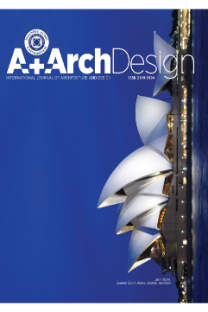Rural Vernacular Heritage and Strategic Design: Matmata as an example of Sustainable Development
Rural Vernacular Heritage and Strategic Design: Matmata as an example of Sustainable Development
This paper examines the sustainable design strategies of Matmata mountains' vernacular architecture. Hence, the small town is located in south-eastern Tunisia and it represents a perfect example of the Berber architectural heritage, offering the opportunity to analyze and discuss the building strategies of the past which are still nowadays considered relevant. Hence, the great potential of this Berber originality manifests itself in the troglodytic (underground) architecture.
This article aims to highlight Matamata's originality and to present the underground living as a cultural heritage recently witnessing a massive decline due to the socio-economic changes the region has undergone. The article also aims to depict the development of hotels.
The initial phase of the research consists of an interpretation of the basic theoretical and methodological concepts of sustainable design. Then, we will introduce a geo-historical study of the region. Afterwards, an analytical study researching the troglodytic architecture of Matmata will take place.
Keywords:
Rural Vernacular heritage Troglodyte, Strategic Design,
___
- [1] Taieb J. and Ballais J.L. (2010). Matmata, Berber Encyclopedia, t. xxx, Paris,4684-4696. Troglodyte’’ Al Sabîl, 2020.: Journal of Maghrebi History, Archeology and Architecture, n°9.
- [2] Nouri Boukhchim. (2018). Matmata South-East Tunisia: settlement and habitat.
- [3] Ballais J.-L, Heddouche A. (1997). Lower Northern Sahara & Grand Erg Oriental", in T. TILLET ed. Sahara. Paleoenvironment and Prehistoric settlement in the Upper Pleistocene, Paris, L’Harmattan,139-163.
- [4] Charleau. Nicole, Jean-Charles Trebbi. (1981). Dug houses, buried houses discover, restore, create a troglodyte habitat, Collection Anarchitecture third quarter.
- [5] Ben Ouezdou H., Trousset P., (2009). Hydraulic facilities in the Tunisian South-East, Control and distribution of water in the ancient and medieval Maghreb, Conference proceedings, Tunis, March 22-25, 2002, Collection of the French School of Rome, 1-18.
- [6] Moderon Y. (2003). The Moors and Roman Africa (4th-7th Century), French School of Rome, 900.
- [7] Ibn Khaldun. (2006-2015). Kitāb al-Ibarwa Diwān al-Mubtadawa-l-Khabar, ed. Ibrahim Chabbouh, Tunis, 14 volumes.
- [8] Ibn Shahinshah, A., (2005). Midmar al-ḥaqâ’iqwasirr al-khalâ’iq, ḤasanḤabasi, Cairo, al-Hay’a al-miṣriyya al-‘âmma.
- [9] Guindani Silvio, DOEPPER Ulrich (1990). Vernacular Architecture, Lausanne, French-speaking polytechnic and university presses, 35.
- [10] The Great Encyclopedia. (1973). t.16, 3255.
- [11] Ibidem
- [12] ICOMOS: International Charter for the Safeguarding of Historic Towns. (October, 1987).
- [13] Le petit Larousse dictionary (2009). http://www.wikiwand.com/fr/Habitat_troglodytique.dictionary2009 http://www.wikiwand.com/fr/Habitat_troglodytique
- [14] Charneau N. et. Ch. Trebbi J. (1981).
- [15] Besana E. et. Mainetti M. (2000), 9 -78.
- [16] www.tourismedurable.net
- [17] Hunzike and Krapf. (1976); In UNESCO.
- [18] Ballesteros Esteban and Ramirez Macarena Hernandez. (2007). Identity and Community—Reflections on the Development of Mining Heritage Tourism in Southern Spain https://www.researchgate.net/publication/222423193_Identity_and_Community- Reflections_on_the_Development_of_Mining_Heritage_Tourism_in_Southern_Spain
- [19] Kassah Abdelfettah. (2006) .
- [20] Libaud G. (1986).
- [21] Boukhchim N. et al. (2018).
- [22] Golany Gideon F. (1988). Earth Sheltered dwellings in Tunisia, Ancient lessons for modern design; Associated University Presses, United States of America , 164.
- [23] Lacour C. (1994). Environment-development integration: theoretical foundations, Regional and Urban Economy, n° 4,537-556.
- ISSN: 2149-5904
- Başlangıç: 2015
- Yayıncı: İstanbul Aydın Üniversitesi
Sayıdaki Diğer Makaleler
Investigating the Role of a Mosque in a Society: A Residential Neighborhood in Rajshahi City
Farjana JESMİN, Md. ASADUZZAMAN, Md HASIB
Kashfia Alam KHAN, Hourakhsh Ahmad NİA
Rural Vernacular Heritage and Strategic Design: Matmata as an example of Sustainable Development
